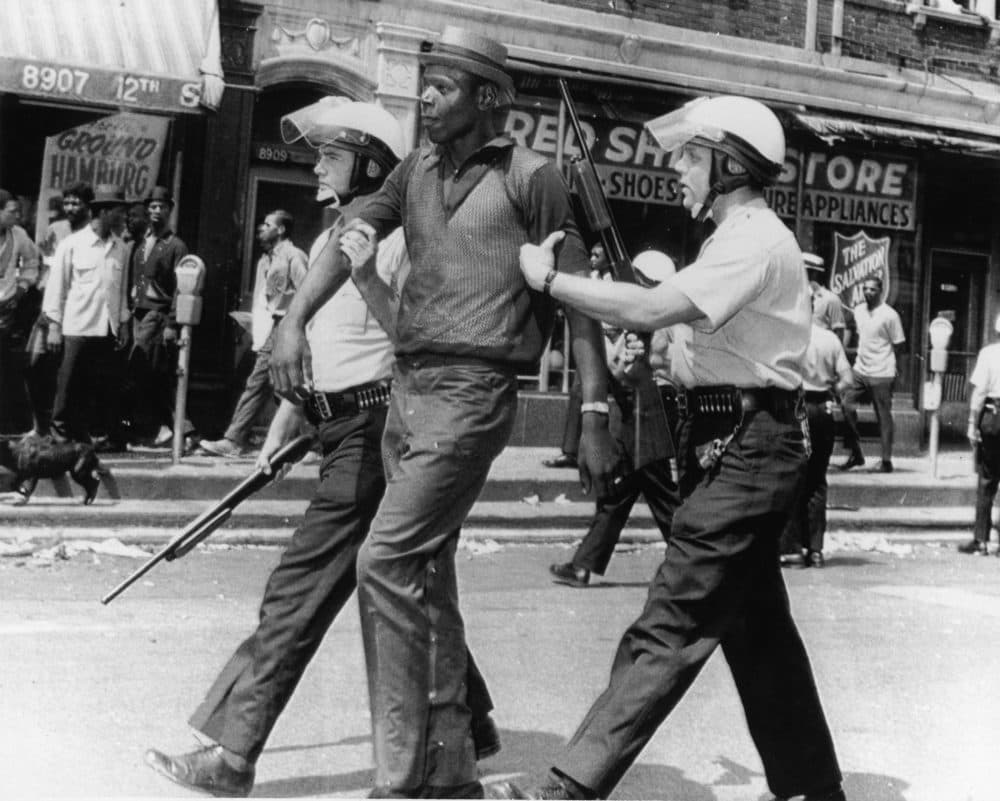Advertisement
A History Of Black Rebellion In America
Resume
Violent protests over racism in the 1960s had a ubiquitous label: riot. Historian Elizabeth Hinton prefers another word: rebellion. We hear the untold history one year after George Floyd's murder.
Guests
Elizabeth Hinton, professor of history, law and African American studies at Yale. Author of the new book "America On Fire" and “From the War on Poverty to the War on Crime: The Making of Mass Incarceration in America.” (@elizabhinton)
Jeff Kirkland, founder of the African American Historical Preservation Society in York, Pennsylvania.
Book Excerpt
Excerpt from "America on Fire: The Untold History of Police Violence and Black Rebellion Since the 1960s" by Elizabeth Hinton. Copyright © 2021 by Elizabeth Hinton. Reprinted with permission of Liveright, an imprint of W. W. Norton & Company.
From The Reading List
New York Times: "Opinion | It's Police Violence That Spurs Black Rebellion" — "The fires that engulfed dozens of cities over the past year seem tame by comparison to the extreme protests that defined American life roughly a half-century ago, when the nation endured domestic violence on a scale not seen since the Civil War."
New York Times: "Recasting ‘Riots’ as Black Rebellions" — "America memorializes the civil rights movement’s modern era in sepia-toned images. Through the retrospective lens that valorizes this past even as it obscures essential aspects of it from the present, John Lewis, one of the peaceful demonstrators who faced down horrific violence as a Freedom Rider and on the Edmund Pettus Bridge in Selma, was acknowledged by the end of his life as an icon of personal dignity and civic virtue."
TIME: "Los Angeles Had a Chance to Build a Better City After the Rodney King Violence in 1992. Here's Why It Failed" — "A peace movement took hold in Los Angeles during the most deadly and destructive rebellion in American history. The uprising was a reaction to systematic injustice rather than a direct response to police violence."
Boston Review: "Reclaiming the Power of Rebellion" — "Protests are filled with symbolic figures. Four-minute die-ins on warm pavements to represent each hour that Michael Brown’s lifeless body lay in the August sun."
This program aired on May 24, 2021.

